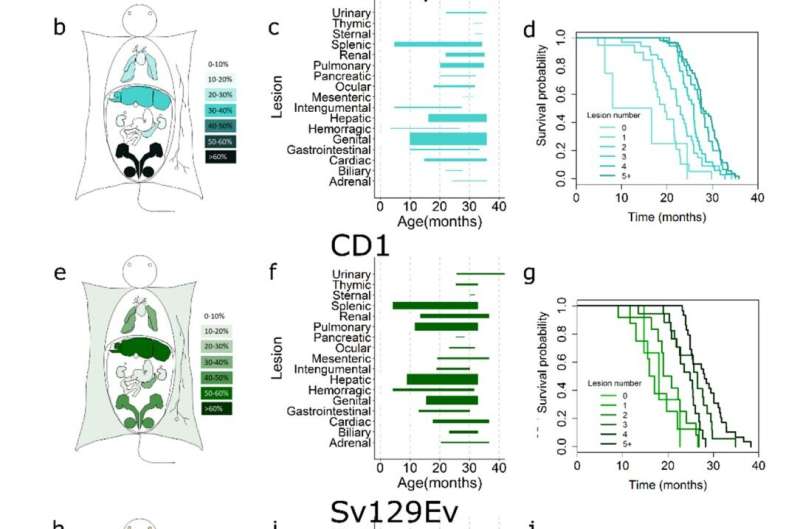This article has been reviewed according to Science X's editorial process and policies. Editors have highlighted the following attributes while ensuring the content's credibility:
fact-checked
peer-reviewed publication
proofread
Genetic background, social rank identified as factors in aging and lifespan in animals

In new work published in PNAS, University of Minnesota Medical School researchers found that genetic background and social rank are critical contextual modifiers of aging and lifespan in animal models of social stress.
"This is the largest translational study yet on the impact of lifelong social stress on healthspan, aging-associated diseases, epigenome and lifespan. This work provides a preclinical, experimental model to study the impact of social determinants of health disparities and accelerated aging in human populations," said Maria Razzoli, Ph.D., a senior scientist at the U of M Medical School.
Low social status is associated with greater levels of stress, which is known to have negative consequences on health and aging. However, individual differences make it unclear whether genetic predispositions and/or the experienced degree of stress are critical risk factors for disease and mortality. This study sought to address this gap in knowledge and test whether genetic background moderates the effect of social status on health and aging.
The research team found low social status corresponded to a shorter lifespan in their study population. However, the study revealed that low status, high status and unstable social status were each identified as the most disadvantageous in different genetic backgrounds. The research team also linked social status to effects on survival with changes in global DNA methylation patterns in the liver.
Further research will focus on the timing of stress exposure from pre-conception to old age. Additionally, future studies are suggested to examine the ability to measure the biological age of an individual using a variety of approaches and determine how stress accelerates it in relation to the individual's chronological age. This would allow researchers to estimate the risk of disease development and life expectancy.
"The ultimate goal of this research is to develop preclinical approaches to support the development of therapeutic interventions to protect against the negative toll of life stress on aging-associated diseases," said Alessandro Bartolomucci, Ph.D., a professor at the U of M Medical School.
More information: Maria Razzoli et al, Contextual modifiers of healthspan, lifespan, and epigenome in mice under chronic social stress, Proceedings of the National Academy of Sciences (2023). DOI: 10.1073/pnas.2211755120
















